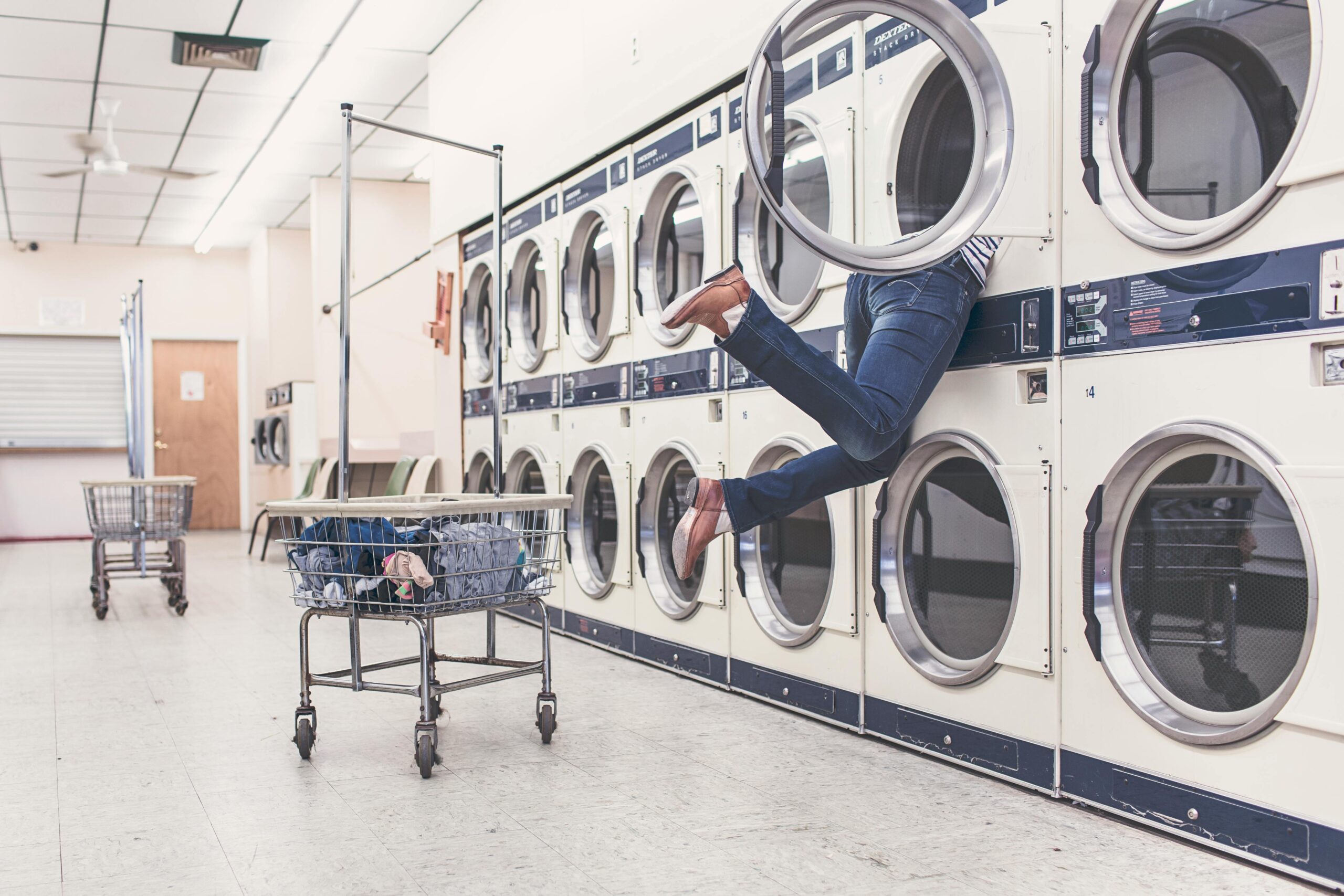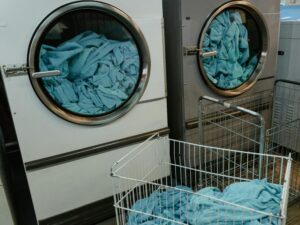How to choose a suitable location for a laundromat business?
Choosing a suitable location for a laundromat business is one of the most important decisions you’ll make as an entrepreneur. The right spot can significantly increase foot traffic, customer retention, and long-term profitability. Here’s a detailed guide to help you find the perfect place.
1. Identify Your Target Market
Before you choose a suitable location for a laundromat business, define your target audience:
-
College students
-
Apartment renters
-
Urban residents without in-unit laundry
-
Lower-income neighborhoods with high population density
2. Look for High Foot Traffic
Foot traffic equals potential customers. Ideal locations include:
-
Near apartment complexes
-
Close to public transport stations
-
Strip malls and busy shopping centers
-
Near colleges or universities
3. Ensure Easy Accessibility & Parking
Customers prefer laundromats that are easy to find, enter, and exit. Make sure the location:
-
Has ample parking space
-
Is wheelchair accessible
-
Is visible from main roads
-
Has proper signage opportunities
4. Study the Competition
Too many laundromats in one area can dilute your customer base. Research nearby businesses:
-
Is there unmet demand?
-
Are existing laundromats outdated or poorly maintained?
-
What services do competitors offer (pickup/drop-off, wash & fold)?
5. Analyze Rent and Utility Costs
Operating costs are directly tied to your location. Inner-city locations may offer better traffic but higher rent. Consider:
-
Monthly lease or property purchase costs
-
Utility access (water, electricity, gas)
-
Security system costs in the area
6. Assess Local Regulations and Zoning Laws
Make sure the property is zoned for commercial use and allows laundry operations. Check:
-
Zoning permissions
-
Business license requirements
-
Environmental or water usage regulations
7. Proximity to Your Home or Management Office
If you’re managing the business hands-on, try to pick a location within a reasonable distance. This reduces travel time and improves responsiveness.
8. Future Growth Potential
Think long-term. The best location is one where:
-
Population is growing
-
New apartments or colleges are being built
-
Commercial development is underway
Conclusion
To choose a suitable location for a laundromat business, you need a balance between visibility, affordability, and demand. A smart location sets the foundation for
What kind of people use a laundromat?
Understanding what kind of people use a laundromat is essential for tailoring services, choosing the right location, and maximizing profits. Laundromats serve a wide demographic, offering affordable and accessible laundry solutions to many types of customers.
1. Apartment Dwellers Without In-Unit Washers
Many people who live in apartment buildings—especially in urban areas—don’t have in-unit laundry. These residents rely on nearby laundromats for convenience.
2. College Students
Students living in dorms or off-campus housing without washers and dryers frequently use laundromats. They appreciate fast, low-cost laundry options.
3. Busy Professionals
Working individuals or families with tight schedules may prefer drop-off or wash-and-fold services provided by laundromats. Convenience is key for this group.
4. Tourists and Short-Term Renters
Visitors staying in vacation rentals or short-term housing often don’t have access to laundry machines and use laundromats to clean clothes during their stay.
5. People with Large Loads or Special Laundry Needs
Even people who own washing machines may visit a laundromat to wash bulky items like:
-
Comforters
-
Rugs
-
Sleeping bags
-
Large family loads
6. Low-Income Families and Individuals
For households that can’t afford their own machines or face high utility bills, laundromats offer a more budget-friendly solution.
7. Commercial Clients
Some laundromats serve small businesses like:
-
Salons
-
Gyms
-
Spas
-
Airbnb hosts
These customers need reliable laundry services on a regular basis.
Conclusion
If you’re wondering what kind of people use a laundromat, the answer is: a diverse range—from students and professionals to travelers and small businesses. Understanding your audience helps you deliver the right services, promotions, and amenities to attract and retain customers.
Why do some people in the US go to laundromats?
Ever wondered why do some people in the US go to laundromats when home washers and dryers are common? The answer is rooted in convenience, necessity, and lifestyle. Here’s a breakdown of the most common reasons.
1. Lack of In-Unit Laundry Facilities
Many Americans—especially those in urban areas—live in apartments without private washers and dryers. For them, laundromats are a necessary solution.
2. Cost-Effectiveness
Buying and maintaining laundry machines at home can be expensive. Utility costs, maintenance, and space constraints make laundromats more affordable for some households.
3. Convenience and Time-Saving
Laundromats offer the ability to wash and dry multiple loads at once. This is a major advantage for people with busy schedules or large families.
4. Large or Bulky Items
Home machines often can’t handle oversized loads like:
-
Comforters
-
Blankets
-
Rugs
-
Pet bedding
Laundromats have high-capacity machines perfect for these tasks.
5. Temporary Housing Situations
People staying in:
-
Hotels
-
Airbnb rentals
-
Short-term apartments
may not have access to laundry facilities, so they use local laundromats during their stay.
6. Emergencies or Machine Malfunctions
Even households with their own machines may rely on laundromats when:
-
Their washer/dryer breaks
-
There’s a power or water issue
-
They need to get laundry done quickly
7. Access to Wash-and-Fold or Pickup Services
Some laundromats offer:
-
Drop-off laundry
-
Pickup and delivery
-
Folding and packaging
These services appeal to busy professionals and seniors who want hassle-free laundry.
Conclusion
So, why do some people in the US go to laundromats? It’s not just about not owning a washer. It’s about affordability, convenience, specialized equipment, and reliable services. Laundromats continue to serve a wide range of customers with diverse laundry needs.
Do Americans love laundromats?
When asking “do Americans love laundromats?”, the answer isn’t as straightforward as yes or no. While laundromats are a necessity for millions of people, the emotional attachment varies depending on lifestyle, location, and income level. Let’s explore the relationship Americans have with laundromats today.
1. The Practical Side of Laundromats
Laundromats are widely used across the United States, especially in:
- Urban areas with limited apartment amenities
- College towns with off-campus housing
- Low- to middle-income neighborhoods
- Cities with high renter populations
Americans may not love laundromats in a romantic sense, but they rely on them heavily for convenience, affordability, and accessibility.
2. Reasons Americans Appreciate Laundromats
Many Americans appreciate laundromats for several key reasons:
- Speed – Washing multiple loads at once saves time.
- Cost-effective – No need to buy or repair machines.
- Social connection – Some communities use laundromats as social spaces.
- Availability – Open late or 24/7 in many places.
In these cases, yes, Americans love laundromats—especially for their usefulness.
3. Why Some Americans Avoid Laundromats
Despite their practicality, some Americans prefer not to use laundromats because:
- They may view them as inconvenient or crowded
- Concerns over cleanliness and machine reliability
- The rise of in-home washers and dryers in many households
In these cases, the answer to do Americans love laundromats? leans toward “not really”—but not due to lack of utility, just preference.
4. The Modern Laundromat Experience
High-tech, eco-friendly laundromats with:
- Wi-Fi
- Comfortable seating
- Contactless payment
- Folding services
…are changing the way people perceive laundromats. In cities like Austin, Portland, and Los Angeles, newer laundromats are earning loyal customers who genuinely enjoy their experience.
Conclusion
So, do Americans love laundromats? The honest answer is many do, in a practical sense. While they may not be glamorous, laundromats are essential to millions of American households. And as modern upgrades continue, they’re becoming more loved than ever before—for both convenience and comfort.
Do you stay at the laundromat?
One of the most common questions for laundromat users is: Do you stay at the laundromat while your clothes wash and dry, or can you leave and come back later? The answer depends on your location, personal preference, safety, and time.
Let’s break down what you should consider.
1. Can You Leave Your Laundry at the Laundromat?
Technically, yes—you can leave, but that doesn’t mean you should.
Risks of leaving:
-
Someone could remove your clothes and place them elsewhere.
-
Your laundry might get stolen (especially in busy or unsupervised laundromats).
-
You may lose your machine to the next user if you’re not back in time.
Best Practice: Stay nearby or set a timer to return just before the cycle ends.
2. Why People Choose to Stay at the Laundromat
Many customers choose to stay at the laundromat for the following reasons:
-
To protect their laundry from theft or damage
-
To move clothes quickly from washer to dryer and avoid delays
-
To use the time wisely by reading, working remotely, or relaxing
Some laundromats even provide Wi-Fi, vending machines, or a café area to make waiting more comfortable.
3. When It’s Okay to Leave
Leaving may be okay if:
-
You’re in a quiet neighborhood or well-supervised laundromat
-
You have a short errand and can be back quickly
-
You know the approximate wash/dry time and set a strict reminder to return
4. Laundromat Etiquette: Staying vs. Leaving
If you’re wondering do you stay at the laundromat as part of good etiquette—the answer is usually yes. Here’s why:
-
It’s courteous to remove your laundry as soon as it’s done
-
It keeps machines available for others
-
You’re less likely to have issues with misplaced or touched laundry
Conclusion
So, do you stay at the laundromat? While it’s not required, staying is the safer, more respectful choice. It prevents theft, keeps the process smooth, and ensures you’re using the machines efficiently. If you must leave, set a timer and return promptly. Respecting others’ time and space makes for a better experience for everyone.
Why do public laundromats do such a lousy job?
If you’ve ever used a laundromat and walked away frustrated with under-washed clothes or still-damp laundry, you’re not alone. It’s common to wonder: why do public laundromats do such a lousy job? Below are the key reasons this happens—and what you can do about it.
1. Poorly Maintained Machines
Many public laundromats operate old or poorly maintained washers and dryers. Machines may:
- Use less water due to efficiency settings or malfunction
- Not reach optimal temperature for proper cleaning or drying
- Have worn-out drums that don’t spin or agitate clothes effectively
2. Overloaded Machines
To save time or money, some customers overload machines, which leads to:
- Clothes not getting fully agitated or rinsed
- Detergent not being distributed properly
- Residue buildup on fabric
Many people blame the laundromat, but it’s often improper use of the machines.
3. Low-Quality Detergent (or None at All)
Public machines don’t come with detergent—you must bring your own. When customers use:
- Low-grade or incorrect detergent
- Too much or too little product
…it impacts the final result. The machine alone doesn’t determine cleaning quality—products matter too.
4. Lack of Professional Oversight
Most laundromats are self-service. Without staff monitoring performance:
- Malfunctioning machines may stay in service
- Dirty lint traps may go uncleared
- Issues may go unreported for weeks
This lack of management leads to subpar user experience.
5. High Traffic & Wear-and-Tear
Public laundromats are used heavily, sometimes 24/7. Constant use results in:
- Machine fatigue
- Reduced performance
- Dirty or unhygienic environments
How to Improve Your Laundromat Experience
To get better results at a public laundromat:
- Choose off-peak hours for cleaner machines and less crowding
- Inspect machines before use
- Use quality detergent and softeners
- Avoid overloading
And if you find a laundromat that’s clean and well-maintained, stick with it!
Conclusion
So, why do public laundromats do such a lousy job? It’s often due to outdated equipment, poor maintenance, and misuse by customers. The good news? You can still get great results with the right approach. Choose the right laundromat, use proper products, and follow best practices for a cleaner, more satisfying experience.
Conclusion: Location, Audience, User Behavior
When it comes to running a successful laundromat business, understanding the conclusion location, audience, user behavior is crucial. These three pillars shape your business’s ability to attract, retain, and grow your customer base.
1. Location: The Foundation of Success
The right location can make or break a laundromat. High-traffic, high-density areas—especially those with limited in-unit laundry—tend to be the most profitable. Look for locations near:
-
Apartment complexes
-
College campuses
-
Public transit
-
Working-class neighborhoods
A laundromat in a visible, convenient area is more likely to thrive.
2. Audience: Who Are Your Customers?
Understanding your target audience allows you to tailor your services. Typical laundromat users include:
-
Renters without washers/dryers
-
Students
-
Busy professionals
-
Low-income families
-
Small business owners (e.g., salons or restaurants needing linens cleaned)
Knowing who uses your services helps in designing pricing, store hours, and amenities that truly meet
3. User Behavior: How Do They Use the Laundromat?
Study your customers’ user behavior:
-
What time of day do they visit?
-
Which machines do they prefer (small vs. large loads)?
-
Do they use wash-and-fold or only self-service?
-
How long do they stay?
This insight allows you to optimize machine placement, staffing, and services like Wi-Fi or vending machines.
FAQ: Location, Audience, User Behavior
1. Why is location so important for a laundromat or service business?
Answer:
Location determines visibility, accessibility, and foot traffic. A laundromat in a densely populated area with limited access to in-home laundry machines (like apartments or urban neighborhoods) will naturally draw more customers.
2. What kind of audience should I target for my laundromat?
Answer:
Your ideal audience often includes:
-
Renters in multi-family units
-
Students
-
Elderly individuals
-
Budget-conscious families
-
Small business owners needing regular laundry service
Understanding who your customers are helps you offer the right amenities and pricing structure.
3. How do I assess user behavior in my laundromat?
Answer:
Observe patterns such as:
-
Busiest times of day and week
-
Machine preferences (front-load vs. top-load)
-
Duration of visits
-
Use of services like folding or vending machines
This data helps you optimize staffing, equipment, and service offerings.
4. Can a good audience compensate for a poor location?
Answer:
Rarely. Even the perfect target audience won’t travel far or struggle with parking to use your services. A bad location limits your exposure and convenience, which can hurt profitability.
5. How can I attract more customers based on user behavior?
Answer:
Offer promotions during slow hours, upgrade to high-efficiency machines, provide seating, free Wi-Fi, and even loyalty programs. Small tweaks based on behavior can improve customer satisfaction and retention.
6. Should I consider competition when choosing a location?
Answer:
Yes. Being close to competitors isn’t always bad—it depends on how saturated the market is and what value you can offer that others don’t (e.g., cleanliness, amenities, or better pricing).
7. How often should I review audience and behavior trends?
Answer:
At least quarterly. Customer needs shift, and keeping a close eye on usage data helps you adapt quickly—whether it’s updating machines or changing store hours.








axfh56